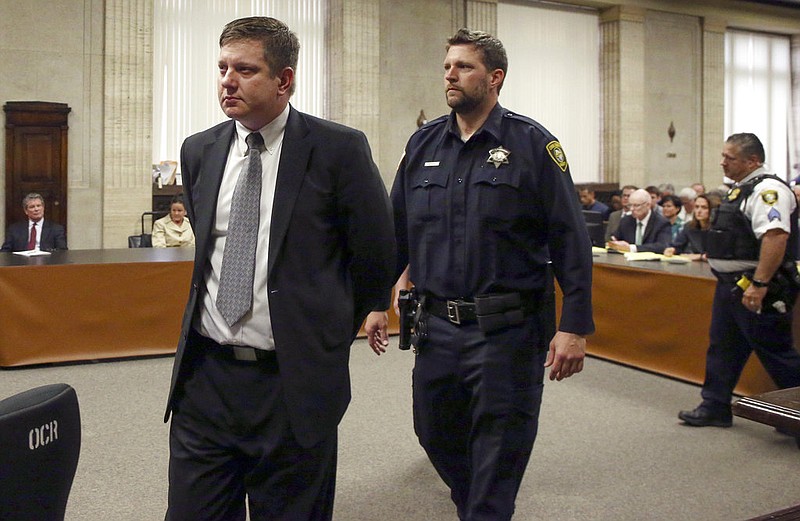CHICAGO-Let's not pretend that the conviction of Officer Jason Van Dyke will heal our broken city. It will not.
Let's not act as though sending a police officer to jail for murder absolves us of the long history of police misconduct that has recklessly taken lives and ruined so many others. It does not.
And by all means, let's not convince ourselves that the conflicts between African-Americans and law enforcement officials have been solved. They have not.
Indeed, this is the first time during our lifetime that a white police officer has been convicted of killing an African-American in Chicago. Black people, no doubt, find some solace in breaking through a barrier that once seemed impenetrable.
But it is not enough.
The line of demarcation between the police and African-American communities was drawn before most of us were born. And it has solidified through each generation.
Some of our communities have been damaged too deeply to mend so easily. It will take much more than vindication for a single police misdeed to repair years of injustice.
Before the verdict was delivered, Chicagoans were on edge, fearful that the city would erupt in violence. Deep inside, many of us likely knew that African-Americans had a legitimate reason to be angry if Van Dyke was acquitted.
If we were to be honest, we would also acknowledge that each of us, of every race and social status in the city, would be partly to blame.
After Laquan McDonald's shooting, the U.S. Justice Department gave us a clear explanation as to why African-Americans in Chicago had reason to be upset.
The 17-year-old's murder is about much more than the death of one teenager. It is about a law enforcement system that historically targeted minorities, particularly African-American males, as though they were every officer's worst enemy.
It is about our acceptance of a Police Department that federal investigators found is flawed to the core. And it is about our city's willingness to close its eyes and cover its ears every time its citizens tried to warn that things were afoul.
It is about the scores of husbands, sons, brothers and uncles who have been racially profiled for generations and further victimized by a code of silence that shielded unscrupulous police officers from punishment.
Yes, the hearts of African-Americans are a little less burdened now that Van Dyke is being held accountable for shooting McDonald 16 times. But many blacks still harbor pain over the death of 22-year-old Rekia Boyd, one of many victims who will never see justice.
Some African-Americans cheered when Van Dyke's guilty verdict came in. But as soon as the disgraced cop was led from the spotlight, a harsh reality set in.
African-Americans cannot rejoice too long over this victory because another case looms in the horizon. Harith Augustus, a 37-year-old barber, was fatally shot by police in July as he left work in South Shore.
And despite newly adopted reforms, there will be other incidents in Chicago or elsewhere, for sure.
This kind of systemic police misconduct doesn't just bruise the surface of minority communities. The pain goes deep into the soul and passes from grandparents to parents, and on to their children.
We cannot move forward as a city until we address the sins of the past. And healing cannot begin until we acknowledge the severe damage that has been done.

